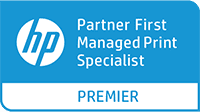How business and IT knowledge turn employees into tech superheroes
3 min read

Jasmine W. Gordon
If IT knowledge is He-Man’s battle-axe, then business knowledge is Marty McFly’s DeLorean: an indispensable vehicle with the ability to take you anywhere you need to go. On a daily basis, IT leaders and workers are called on to navigate all challenges, from technical disruptions to productivity threats—but with the combination of both IT and business knowledge, IT pros become hyper valuable.
Technical consultant Scott Norberg believes business knowledge can benefit project outcomes, regardless of an IT worker’s role in an organization. In Norberg’s experience, “Programmers who know what the software is trying to accomplish will make better decisions and will ask better questions. Programmers who don’t will not, inevitably leading to problems down the road.”
For IT leaders, an overlap of IT and business knowledge results in complete communication—not to mention better products. In other words, learning your business can transform you from important to critical.
IT knowledge broadens to business
The agile methodology has made such an impact in DevOps because it’s uniquely focused on business outcomes. By writing user stories with business-focused criteria, you develop clear success measures for your IT projects. IT pros who understand their business, their industry, and their end users can communicate more effectively, solve problems, and act as a conduit between tech and the rest of the company.
These cross-functional capabilities can have a long-term, positive impact on your career path. Whether you’re aiming for CTO or CEO, you’ll need both IT knowledge and business knowledge. In a deep-dive study on what differentiates executives from your average employee, Russell Reynolds Associates discovered that optimism is a key factor. The executives aren’t afraid to actively go after new opportunities, including cross-functional projects, due to a fear of failure.
In The CEO Report, Heidrick & Struggles discovered that those who want to lead need “core” experience, which includes exposure to people skills, general management, finance, and more. Additionally, the CEO’s of tomorrow will have no choice but to embrace continuous learning. If your sights are set on the C-Suite, broad exposure to a variety of business functions—while aggressively acquiring knowledge—is a crucial resolution.
Developing cross-functional business skills
So, how do IT leaders learn the critical aspects of business needed to advance their careers? These three strategies focus on leveraging people, experiences, and not-so-traditional education.
1. Be bold
IT pros should take the optimism factor to heart and develop a bold pursuit of internal networking. Make it clear to your manager that you’re eager for cross-functional projects and opportunities. Make an effort to build relationships with individuals outside your department. Have lunch with colleagues from the marketing department. If you pursue opportunities before you and raise your hand when cross-functional projects are on the table, you can significantly speed up your business knowledge acquisition.
2. Don’t wait on your employer
Leadership author Dr. Herminia Ibarra discovered that “stretch experiences,” or taking on tasks outside your typical responsibilities, can be difficult for employees to find. This is especially the case when an employee’s skills are so valuable that the company can’t afford to have them shift their focus from day-to-day operations. However, 62 percent of MBA graduates report that assignments cutting across lines of business, hierarchy levels, and functional specialties had a wildly positive impact on their careers.
For some IT pros, the directive to join cross-functional projects isn’t practical, due to talent shortages or corporate culture. If that’s your life, Ibarra advises strengthening your external network and actively pursuing extracurriculars to broaden your industry exposure. Design thinking could be a great place to start.
3. Invest in MOOCs
Enrolling in a handful of massive open online courses (MOOCs) won’t give you the same knowledge of corporate finance as a CPA, but it’s still worth consideration. Coursera offers a five-class specialisation in introductory corporate finance, while you can head to EdX to acquire groundwork in the principles of marketing. You’ll emerge with a richer groundwork and tools for cross-functional communication.
IT professionals understand their businesses have the weapon to fight against productivity killers and disruption villains. In day-to-day interactions with your colleagues, you’ll be able to offer relevant solutions. Not only will you gain the potential to really get stuff done, but you’ll position yourself as a business hero.
Novatech is a proud HP Partner First Managed Print Specialist



